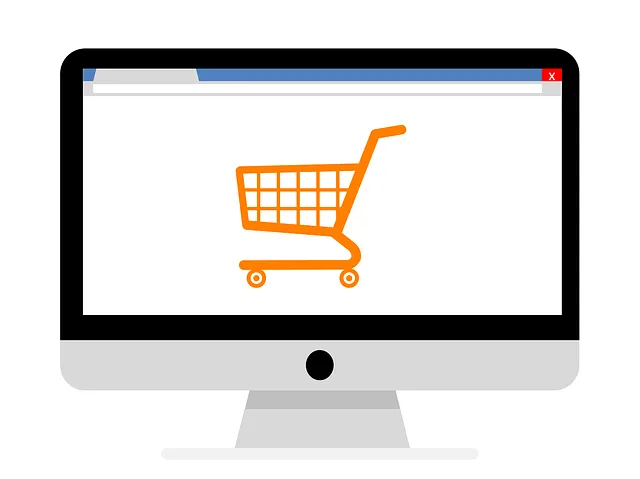Environmental scientists and activists working on critical issues like climate change and deforestation face significant online risks, including identity theft, surveillance, and backlash from powerful interests. To protect their sensitive data and ensure secure international collaboration, they rely on Private Internet Access (PIA), a leading VPN service offering advanced encryption, IP address masking, and anonymous browsing. PIA safeguards researchers' digital privacy, enabling open communication while protecting against interception or monitoring, fostering a secure environment for global knowledge-sharing and collaboration.
“In an era where digital footprints can reveal sensitive information, environmental scientists and activists face unique challenges in their quest to protect our planet. This article explores the critical role of anonymous browsing in safeguarding privacy during research and activism. We delve into the need for private internet access as a tool to protect against data breaches and enable global collaboration among medical researchers worldwide. By implementing secure online practices, professionals can effectively navigate the digital landscape while preserving confidentiality.”
- Understanding the Need for Privacy in Environmental Research and Activism
- The Role of Anonymous Browsing in Protecting Sensitive Data
- Benefits of Private Internet Access for Global Collaboration among Researchers
- Implementing Secure Online Practices: Tools and Best Practices for Environmental Scientists and Activists
Understanding the Need for Privacy in Environmental Research and Activism

Environmental scientists and activists often find themselves at the forefront of critical research and advocacy, addressing pressing issues like climate change, deforestation, and pollution. Their work involves collecting sensitive data, engaging with vulnerable communities, and uncovering corporate or governmental secrets. In this high-stakes landscape, ensuring privacy and anonymity is paramount. The public nature of the internet can expose researchers to potential risks, including identity theft, surveillance, and backlash from powerful interests.
For these professionals, a private Internet access service becomes an indispensable tool for safeguarding their work and that of their organizations. By utilizing encrypted connections and masking their IP addresses, they can browse the web anonymously, protecting their identities and the integrity of their research. This is especially crucial when collaborating internationally, as Private Internet Access for Medical Researchers Worldwide enables seamless, secure communication and data sharing without compromising privacy.
The Role of Anonymous Browsing in Protecting Sensitive Data

For environmental scientists and activists, protecting sensitive data is paramount. In a world where research often involves uncovering and sharing critical information about climate change, deforestation, and other pressing environmental issues, anonymous browsing plays a crucial role in safeguarding this data. By utilizing tools like Private Internet Access (PIA), researchers can navigate the internet securely, ensuring their online activities remain private and untraceable.
This privacy is essential to protect against potential threats such as surveillance by industries or governments with vested interests in keeping environmental research quiet. PIA’s robust encryption features prevent any third party from accessing or logging users’ browsing activity, thereby fostering a secure environment for data sharing and collaboration among medical researchers worldwide. This anonymity empowers activists and scientists to continue their vital work without fear of reprisal or data breaches.
Benefits of Private Internet Access for Global Collaboration among Researchers

For medical researchers worldwide, ensuring the privacy and security of their online activities is paramount, especially when collaborating on global initiatives. Private Internet Access (PIA) offers a robust solution by encrypting internet traffic, protecting sensitive data exchange between researchers in different countries. This is crucial when sharing confidential research findings or participating in international collaborations, where the last thing scientists want is for their communications to be intercepted or monitored.
PIA’s anonymous browsing capabilities enable researchers to maintain their digital privacy while accessing critical resources and connecting with peers. By shielding their IP addresses and online activities, PIA facilitates open and secure communication, fostering a global environment where medical breakthroughs can be shared and built upon without fear of surveillance or data breaches. This private access is especially beneficial for environmental scientists and activists who often work on sensitive topics, requiring them to navigate the internet discreetly.
Implementing Secure Online Practices: Tools and Best Practices for Environmental Scientists and Activists

In today’s digital age, environmental scientists and activists face unique challenges when it comes to safeguarding their online privacy and security. Their work often involves sensitive data, research insights, and advocacy campaigns that could attract unwanted attention from various sources, including government agencies or corporate interests. Implementing secure online practices is not just a best practice; it’s an essential step to protect their integrity, the confidentiality of their research, and the safety of themselves and their communities.
Private Internet Access (PIA) has emerged as a game-changer for individuals seeking online privacy and security. PIA offers encrypted VPN services that mask users’ IP addresses and routes their internet traffic through secure servers worldwide. This practice is particularly crucial for medical researchers globally who need to access and share sensitive information securely, ensuring they remain anonymous while navigating the vast and often unguarded digital landscape. By employing PIA, environmental scientists can protect their digital footprint, engage in secure online communications, and collaborate without fear of surveillance or data breaches.
For environmental scientists and activists, prioritizing data privacy is paramount. By adopting anonymous browsing tools, they can safeguard sensitive research findings and protect themselves from potential surveillance. This ensures a secure environment for global collaboration, fostering open dialogue and enabling impactful environmental advocacy worldwide. Embracing private internet access becomes a powerful enabler, facilitating the exchange of crucial information without compromising security or anonymity.
